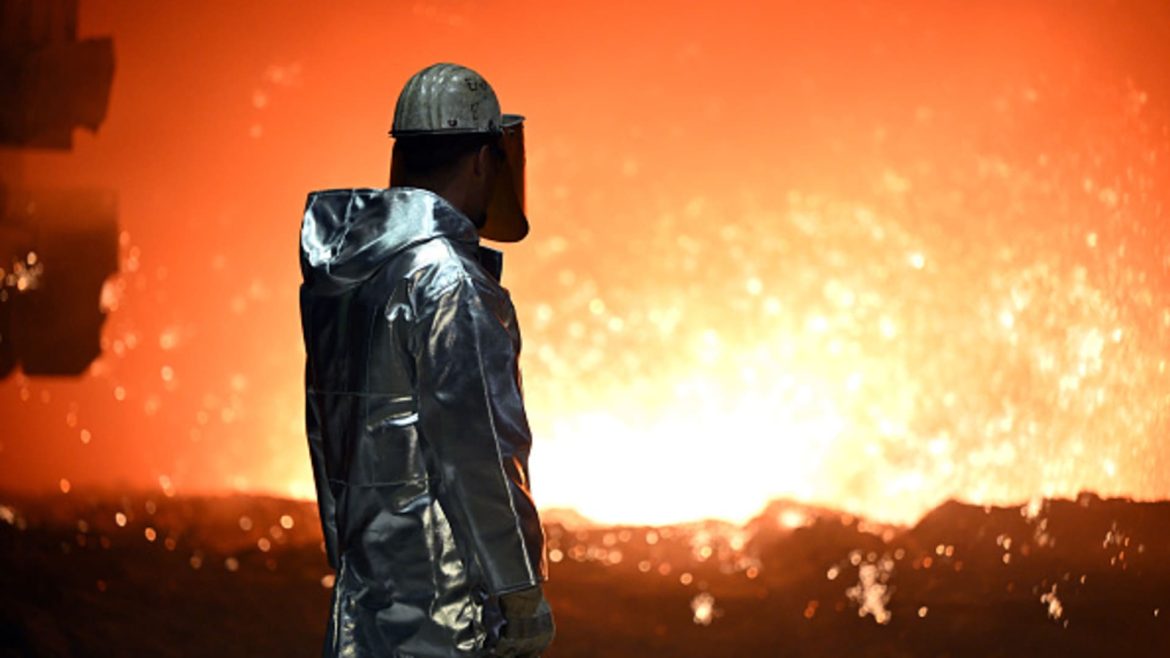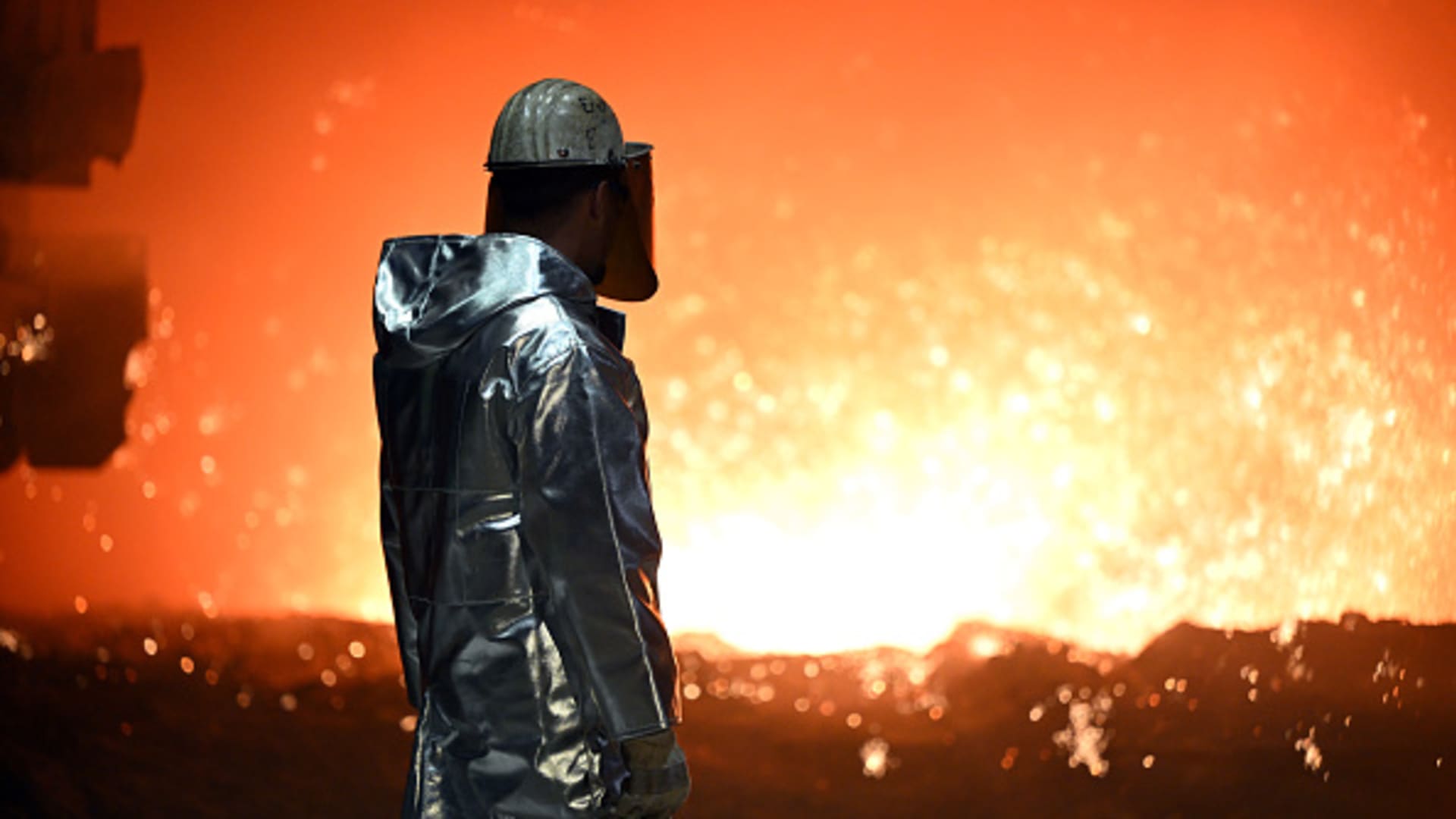The recent decision by U.S. President Donald Trump to double tariffs on steel and aluminum imports from 25% to 50% marks a significant escalation in ongoing global trade tensions. While this move impacts many countries worldwide, the United Kingdom notably stands out as an exception, temporarily spared from facing the full brunt of the new 50% tariffs. This development carries notable consequences for international trade relations, the UK steel industry, and broader geopolitical economic dynamics.
Escalation of U.S. Steel and Aluminum Tariffs
On June 4, the United States doubled its tariffs on steel and aluminum imports, increasing import taxes from 25% to 50%. This policy, enacted through an executive order, intends to protect U.S. steel and aluminum producers and preserve what the administration describes as national security interests. The tariffs apply broadly to multiple trading partners, sparking significant international backlash and concerns over intensifying trade wars.
Global partners, including many European countries, Mexico, Canada, Australia, and others, have expressed anger and warned of retaliatory measures. The increased duties threaten to disrupt global supply chains, increase costs for industries dependent on imported metals, and fuel uncertainty in international markets.
The UK’s Unique Position: A Conditional Exemption
Despite the broad application of these tariffs, the United Kingdom has been temporarily exempted from the 50% steel and aluminum tariffs. Instead, U.S. import duties on UK metals remain at the previous 25% rate. This different treatment stems from a recent trade agreement struck between Washington and London, allowing the UK to avoid the steepest immediate tariff hike.
However, this exemption is not permanent and has been described as conditional by the White House. The U.S. administration has indicated that the UK’s 25% tariff status will be revisited by July 9, after which higher tariffs could be enforced if certain conditions are not met. This conditional relief reflects ongoing negotiations and underscores that the exemption is a temporary reprieve rather than a permanent resolution.
Economic and Industry Impacts on the UK
The UK’s steel industry has received the temporary reprieve with mixed reactions. Industry leaders have welcomed remaining at the 25% tariff level, seeing it as a crucial buffer against a much harsher blow. For example, Gareth Stace, director-general of UK Steel, described the prospect of a 50% tariff as potentially “another body blow” to the industry, underscoring the vulnerability of UK steelmakers to such punitive duties.
While the lower tariff rate cushions UK producers to some extent, uncertainty remains a significant concern. The looming July deadline and lack of clarity on future trade terms leave UK companies in a precarious position, complicating investment decisions and strategic planning.
Moreover, the tariff regime affects not only direct trade flows but also the broader supply chains, as aluminum and steel feed into multiple sectors including automotive, construction, and manufacturing. Any tariff increases would ripple through these industries, raising costs and potentially reducing competitiveness.
Broader Global Trade Ramifications
The doubling of tariffs has reignited fears of an intensifying trade war that could destabilize international markets. Countries worldwide have condemned the U.S. move, warning that such protectionist measures undermine ongoing efforts to negotiate fair trade agreements and harm global economic growth.
For example, the European Union has expressed strong regret, threatening countermeasures in response to what it sees as unilateral, unjustified trade restrictions. Mexico, a close trading partner of the U.S., has also voiced anger given its significant steel exports to the American market.
In this climate, the UK’s differentiated treatment by the U.S. marks an important geopolitical signal. It underscores the strategic value of trade agreements and diplomacy in influencing tariff policies, illustrating how bilateral relations can mitigate some effects of broader protectionist trends.
Looking Ahead: Uncertainty and Strategic Responses
The unfolding situation presents several key uncertainties and challenges. The UK must negotiate its position carefully to maintain tariff protections beyond the temporary grace period. Concurrently, the government and industry need to brace for potential volatility in trade policies and market conditions.
Strategically, the UK might pursue avenues to deepen trade ties with the U.S., aiming to secure a zero-tariff steel accord as some voices suggest, thereby safeguarding the sector from abrupt tariff hikes. Maintaining open communication channels and aligning regulatory standards could help solidify a more stable bilateral trade framework.
For global markets, the escalation in tariffs signals heightened risks of further protective measures and retaliations by other countries, potentially leading to fractured supply chains and increased costs for businesses and consumers.
Conclusion: Temporary Respite Amidst Global Trade Turmoil
President Trump’s decision to double steel and aluminum tariffs to 50% has thrust international trade tensions into sharper relief, inflicting widespread economic uncertainty. The United Kingdom’s temporary exemption from the full 50% levy represents a significant, albeit conditional, reprieve securing some breathing room for its steel industry. This case highlights the power of trade agreements and diplomacy in navigating an unpredictable protectionist landscape.
However, the conditional nature of the exemption coupled with global backlash signals that trade disputes remain far from resolution. The UK and other nations must carefully negotiate and adapt to evolving trade policies to protect their industries and economic interests. The broader episode serves as a reminder of the fragility of global trade cooperation in an era marked by growing unilateral actions and geopolitical complexities.





